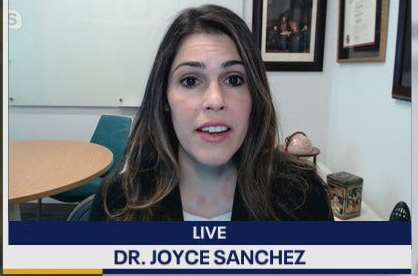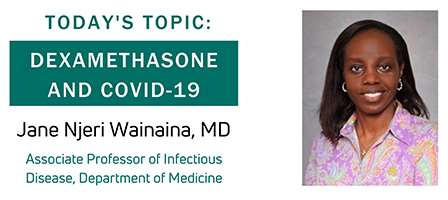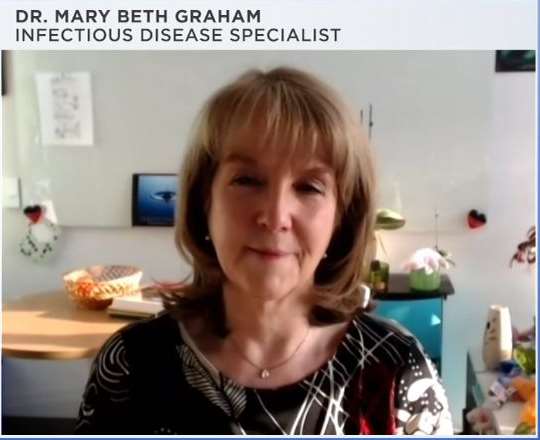MCW Faculty Take on New Roles During Pandemic
 When the COVID-19 pandemic began, most of the world looked to medical professionals to guide them through this public health crisis. They were suddenly thrown into the spotlight, taking on additional roles of communicators and spokespersons, asked to answer the question: “Can you be an expert in something you don’t know much about?”
When the COVID-19 pandemic began, most of the world looked to medical professionals to guide them through this public health crisis. They were suddenly thrown into the spotlight, taking on additional roles of communicators and spokespersons, asked to answer the question: “Can you be an expert in something you don’t know much about?”
Many medical professionals at MCW found themselves in this situation and now, some two years later, have had the chance to reflect on those unique roles.
“The challenges of staying informed, prepared and flexible have remained common threads throughout the past two years,” says Joyce Sanchez, MD, MCW assistant professor of medicine (infectious diseases). “Conveying information with clarity, but also with nuance and acknowledgment of my limitations in that knowledge, isn’t something that comes naturally.”
To limit the spread of the virus, many medical professionals were faced with the challenges of bringing work home.
During the pandemic, the role of Zeno Franco, PhD, assistant professor in MCW’s department of family and community medicine, has been heavily focused on working with community health workers leading mask distribution, crisis management and vaccine education – mostly from his home. “Helping to manage the community-based response meant more meetings than ever. There were days when Zoom was on in the house for 14 hours straight,” he says.
 MCW medical professionals also became experts on the first treatments and clinical trials for COVID-19.
MCW medical professionals also became experts on the first treatments and clinical trials for COVID-19.
“My biggest and ongoing leadership win was successfully incorporating monoclonal antibodies into our outpatient COVID-19 treatment arsenal,” says Jane Njeri Wainaina, MD, FEL ’12, MCW associate professor of medicine (infectious diseases) and vice chair.
“The moments that stick out the most have been my interactions with our hospitalized COVID-19 patients,” says Mary Beth Graham, MD, MCW professor of medicine and associate chief of infectious diseases. “Early in the pandemic, there was little to offer patients from a therapeutic standpoint. For months, convalescent plasma was a front-line therapy for hospitalized COVID patients, and I believe that the treatment may have made the difference in the outcome for some of them.”
 Perhaps the most unique shift to the medical professionals’ roles was becoming public communicators tasked with explaining scientific processes, providing updates and clearing up medical misconceptions.
Perhaps the most unique shift to the medical professionals’ roles was becoming public communicators tasked with explaining scientific processes, providing updates and clearing up medical misconceptions.
For Ben Weston, MD, MPH, FEL ’15, MCW associate professor of emergency medicine, his role shifted significantly during the pandemic to include responsibilities as chief health policy advisor for Milwaukee County, as well as a key communicator to the public and interview source for media.
“With each new development in the pandemic, communications remained a challenge, as did providing useful information to a varied audience while keeping the message focused, yet universal,” he says.
Laura Cassidy, MS, PhD, professor and director of epidemiology, MCW Institute for Health & Equity, has joined Dr. Weston to provide updates at virtual meetings and on the radio regarding COVID-19 in the region, and to highlight ways MCW has helped communities and businesses during the pandemic.

Although the newfound leadership of these medical professionals may have been both a surprise and a willing commitment, they all stepped up when they were needed most.
“I think this is one of the key elements of leadership – recognizing people with talent, skill and the right intention,” says Dr. Franco. “Initially we all thought it would last maybe a month or two, but it has become clear that part of leadership is the ability to just keep going.”
– Hannah Thulin



